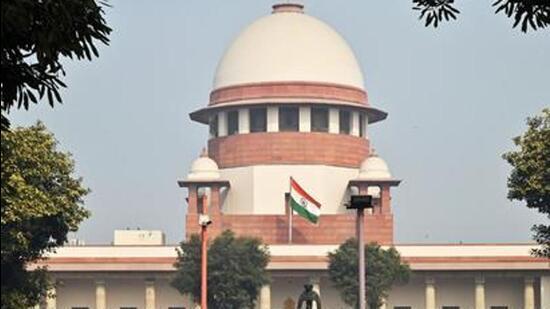
Calling someone ‘Miyan-Tiyan’ & ‘Pakistani’ not an offence: Supreme Court
In a recent ruling, the Supreme Court of India has clarified that calling someone “Miyan-Tiyan” and “Pakistani” is not an offence and does not constitute a criminal act. The court’s decision came in response to a case filed against an 80-year-old man who was accused of hurling abuses at an Urdu translator in Jharkhand.
The case was filed against the 80-year-old man after the Urdu translator alleged that he was subjected to verbal abuse by the elderly man, including being called “Miyan-Tiyan” and “Pakistani”. The translator claimed that the remarks were made with an intention to hurt his religious sentiments and demanded action against the accused.
However, the Supreme Court dismissed the case, stating that the remarks made by the accused did not amount to hurting the religious sentiments of the translator. In its ruling, the court noted that calling someone “Miyan-Tiyan” and “Pakistani” may be in poor taste, but it does not constitute an offence under the Indian Penal Code (IPC).
The court’s decision is significant in the context of the growing trend of hate speech and communal tensions in the country. In recent years, there has been an increase in incidents of verbal and physical abuse directed towards individuals from minority communities, including Muslims and Christians.
The case highlights the need for a nuanced understanding of what constitutes an offence under the IPC. While the court’s ruling may be seen as a setback for those who believe that certain words or phrases can be hurtful and offensive, it also underscores the importance of ensuring that free speech is not curtailed.
In its ruling, the court noted that the accused’s remarks were not made with an intention to promote enmity between different groups, but were rather a personal attack on the translator. The court also took into account the fact that the translator did not suffer any physical harm or damage to his property as a result of the alleged abuse.
The case has sparked a debate on the use of certain words and phrases in public discourse. While some argue that calling someone “Miyan-Tiyan” and “Pakistani” is inherently offensive and hurtful, others believe that it is a harmless remark that does not warrant criminal action.
In recent years, there have been several instances of individuals being booked for making allegedly offensive remarks. In some cases, the accused have been arrested and charged with hate speech, while in others, they have been granted bail and the cases have been closed.
The Supreme Court’s ruling in this case highlights the need for a more balanced approach to addressing hate speech and communal tensions. Instead of resorting to criminal action, the court’s decision suggests that a more nuanced approach is needed, one that takes into account the context in which the remarks were made and the intentions of the person making them.
In conclusion, the Supreme Court’s ruling that calling someone “Miyan-Tiyan” and “Pakistani” is not an offence is a significant development in the ongoing debate on hate speech and communal tensions in the country. While the decision may be seen as a setback for those who believe that certain words or phrases can be hurtful and offensive, it also underscores the importance of ensuring that free speech is not curtailed.






